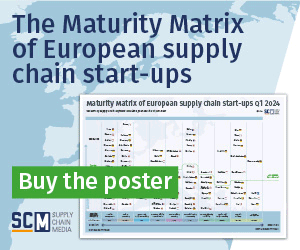Coronavirus communication

For companies involved in supply chain, these are very hectic times due to the coronavirus pandemic currently sweeping the globe. In preparation for our European survey on the business impact of COVID-19, I called a handful of supply chain executives. Virtually all of them were pressed for time because they were hurrying from one call to the next. But they spared a couple of minutes to talk to me nevertheless, because they realized that a survey of this kind – when the heat is on – can reveal some very interesting insights.
An executive at a food producer wanted to know whether other companies’ factories were all still running or whether production had been temporarily halted in order to safeguard the health and safety of employees. Meanwhile, a European supply chain director at an ingredients company mentioned that he had been called by almost all food manufacturing customers individually to ask whether his company could still produce and supply in Europe for now. He assured them that all the plants were still operational, including those in northern Italy. However, his attention had shifted from the usual monthly planning cycle to weekly and daily supply chain planning for the essential products.
Besides the supply chains for food, the ones for medical equipment and disposables are running flat out too. A supply chain executive from an American healthcare manufacturer told me that his company was operating in full business continuity planning (BCP) mode. According to him, it’s essential to be creative. He also wondered out loud how his company could maintain this fast pace of fulfilment after the current crisis.
Focus on internal communication
I asked each of the supply chain executives whether they were in contact with their peers within other companies. One mentioned calling a fellow executive, but mostly they seemed focused on internal communication. They’re not in a dedicated WhatsApp group for supply chain executives, for example.
Updates about the spread of coronavirus via WhatsApp
Singapore has started using the TraceTogether app, which shows citizens whether other people are infected and shares updates about the spread of coronavirus via WhatsApp. A similar supply chain app could be useful in keeping companies informed about whether suppliers are still producing and able to supply. I firmly believe that rapid group communication between companies is absolutely essential to support the early anticipation of supply chain disruptions.
Martijn Lofvers, Chief Trendwatcher Supply Chain Media
martijn.lofvers@supplychainmedia.nl








